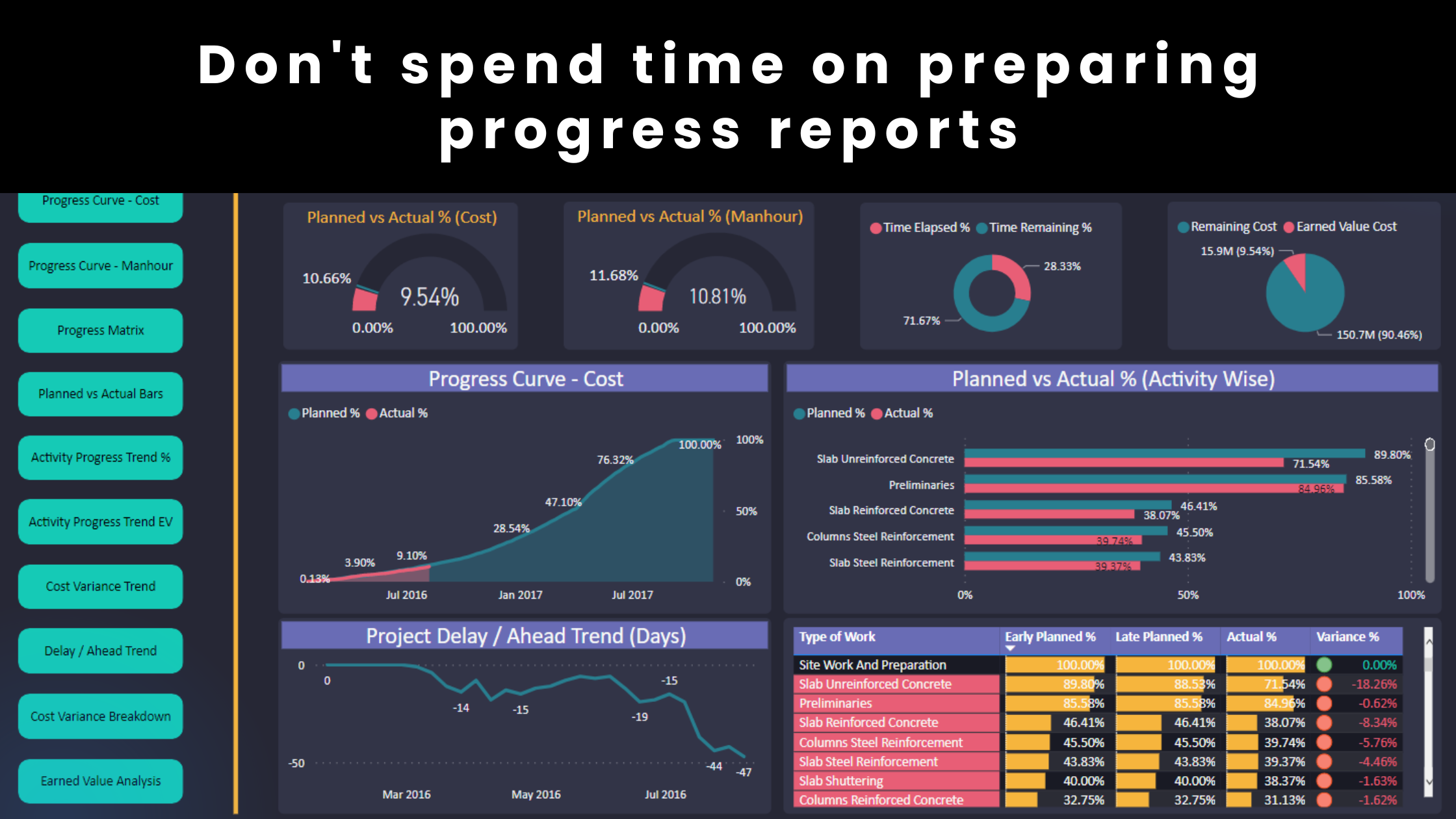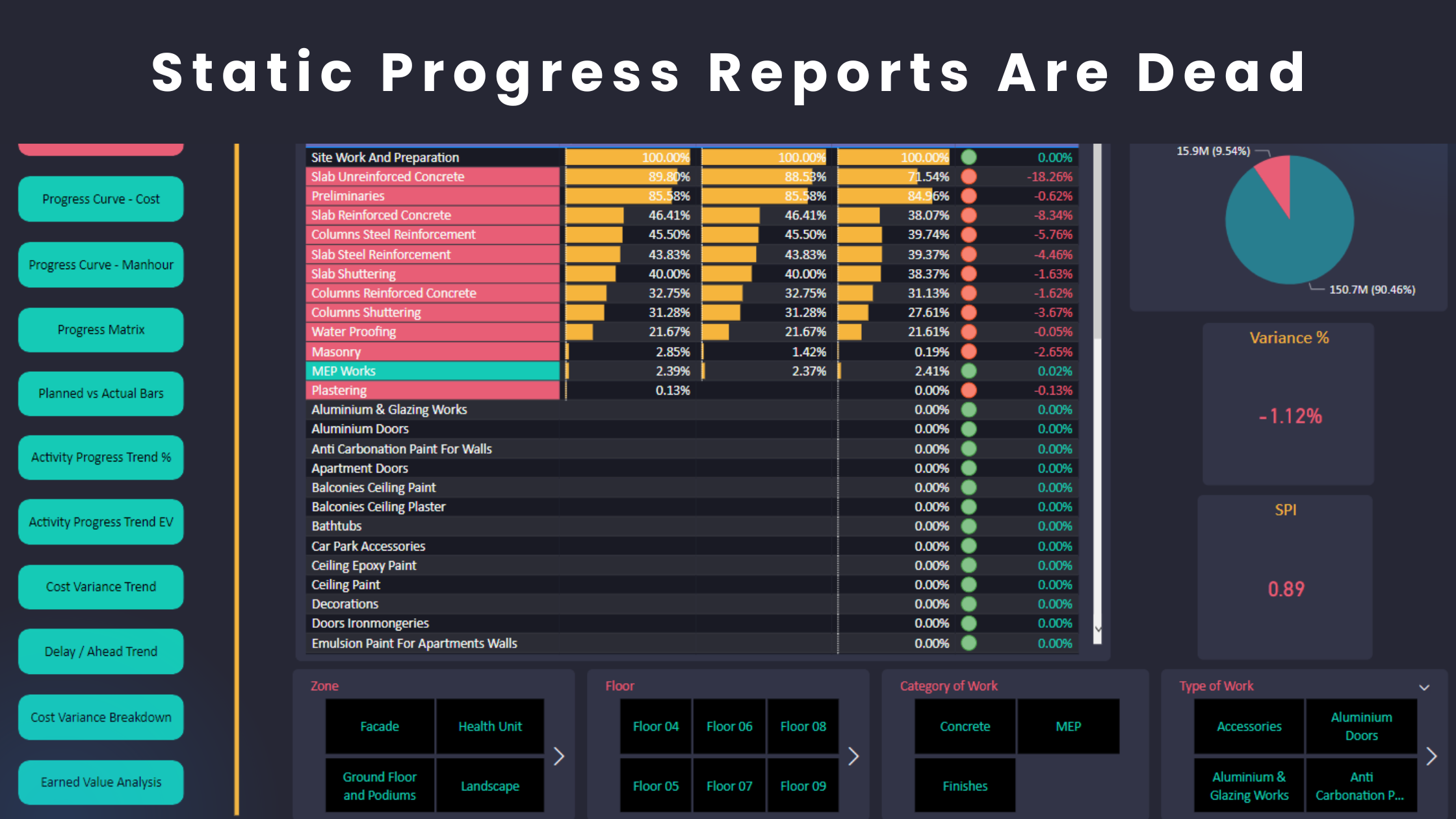Schedule changes are crucial in project control but they are not often discussed.
You will most likely need to make, document and justify schedule changes throughout the project. First, let’s look at why we need to manage the schedule changes carefully.
The Contractor is the constructor of the project so the Contractor utilizes the suitable means and methods in the baseline schedule. Both the Consultant and Client can have some comments in the baseline development phase but for the most part, the Contractor reflects the construction tools and methods in the program.
This establishes the baseline program. It represents the Contractor’s original intention of how the work should be performed over the project life cycle. Moreover, the completion date is now “scheduled” in the baseline schedule as a result of everything that has been done in the schedule so far (e.g. number of activities, durations, relationships, calendars, etc). This also means that any changes to these schedule attributes might cause corresponding changes to the completion date. Therefore, any deliberate changes in any of the schedule attributes should be managed carefully.
A huge misconception is that the schedule changes are the sole responsibility of the Contractor but this is far from the truth.
Know your rights and boundaries regarding the schedule changes as a Contractor and a Consultant.
1- Schedule changes – The Contractor’s perspective
many engineers underestimate how sensitive the CPM network is to changes. A single change in the schedule can cause dramatic changes to the network behaviour. Such change can take the schedule from order to chaos and vice versa. Moreover, the changes are sometimes incorporated with good intentions (e.g. removing out-of-sequence to ensure schedule reliability). However, in other cases, the Contractor manipulates the schedule to achieve a favoured outcome that is not necessarily in the best interest of the project. Therefore, all schedule changes must be properly documented and justified as a part of the periodic progress reports.
2- Schedule changes – The Consultant’s perspective
The consultant must carefully review these changes, and perform what-if scenarios to evaluate the impact of these changes. Moreover, the consultant should identify, report and respond to any manipulation attempts by the Contractor. The Consultant should reject any changes (full or partial) if the changes are not in the best interest of the schedule/project. In addition, the Consultant should provide feedback in a timely frame manner. If the Consultant responds to these changes after 1 year, the response will be void and useless. The changes were made 1 year ago and the corresponding outcome was communicated to all project parties for decision-making.
Everyone acted on that report back then. These actions can include developing the necessary recovery measures, reviewing the possibilities of schedule acceleration, analyzing extension of claim opportunities and drafting formal notices. You can’t now decide, for the first time, to reject some schedule changes that were incorporated 1 year ago – the changes that led to the above-mentioned actions and triggers and made everyone act on them. Although the consultant’s review time might not be stipulated in the Contract, it can be a huge weakness in any dispute resolution if the reviewer takes too long to respond.
Best practices for managing schedule changes.
- Both the Contractor and the Consultant should agree on the “Schedule Change Log Format” that will be used to document and justify schedule changes.
- The log should include all appropriate details. For example, for logic changes, specify if the changes are related to the predecessors or successors. Moreover, mention if the changes are related to the relationship type and lag. Moreover, write the Activity ID and Activity Description for all impacted activities. Finally, justify the change and explain the negative consequences of not making that change on the schedule reliability.
- It is very effective for the relevant parties to sit at the same table and discuss the changes.
- Mention when the change was incorporated into the schedule (e.g. weekly report no. and data date).
- Document and justify the changes in a way that assumes the reviewer has no prior knowledge or familiarity with the project.
Finally, managing schedule changes is a challenging and tough journey but it is worth the effort for all project parties to ensure the project’s success and fairness in calculating damages.
Regards,
Osama Saad, MBA, PMP, PSP, CCP, PMI-SP










